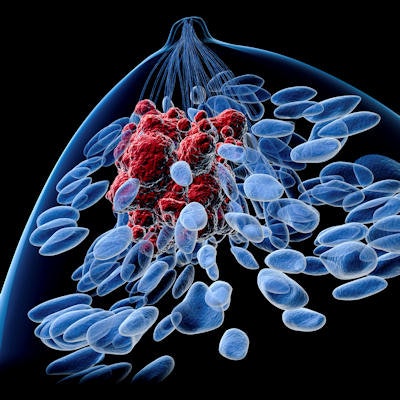
Many women don't feel completely informed about their surgical options for breast cancer treatment, according to new research published online December 12 in the Journal of the American College of Surgeons.
The study results suggest that women need access to consistent, reliable information about surgical breast cancer treatment in a variety of formats, wrote a team led by Dr. Sunny Mitchell, a breast surgeon in Stratford, CT.
"It's unrealistic to expect that the majority of patients have sufficient health literacy, research skills, information access, and clarity of mind to inform themselves about all treatment options, and to make the best decision," Mitchell and colleagues wrote. "Therefore, it should be the responsibility of the physician to educate the patient about treatment options and to ensure she's sufficiently informed to make a decision."
Completely informed?
The researchers conducted a web-based survey in June 2016, recruiting 487 women from health advocacy groups, clinics, and other health-related organizations who had received a breast cancer diagnosis and undergone lumpectomy, mastectomy, or both.
Participants were asked how informed or uninformed they felt about treatment options before undergoing breast cancer operations:
- 47% of lumpectomy patients said they felt completely informed.
- 67% of mastectomy patients said they felt completely informed.
- 28% of patients who underwent both procedures said they felt completely informed.
When asked if researching all of their options or making a quick decision was a priority, 35% of the lumpectomy-only patients, 31% of the mastectomy-only patients, and 22% of those who had both said that making a quick decision was more important.
When asked how strongly they agreed or disagreed that they wished they had more time to explore different breast cancer surgery options, the majority of all three groups agreed somewhat or strongly that they wished they had more time, Mitchell and colleagues wrote.
Effective education
In a separate study, also published online December 12 in JACS, another research team found that a web-based decision-aid tool improved patients' knowledge of treatment options more than standard cancer websites. Patients using the decision aid were more likely to recognize that waiting a few weeks to make a decision regarding their breast cancer operation would not negatively affect survival, according to a group led by Dr. Heather Neuman of the University of Wisconsin-Madison.
From April 2014 to June 2016, Neuman and colleagues randomized women newly diagnosed with stages 0 to III breast cancer who were considering an operation within the university's breast program by sending them a web link via email. The link took patients to a web-based decision aid or to standard cancer websites such as breastcancer.org or those of the American Cancer Society (ACS) and the National Cancer Institute (NCI). After receiving the links and reviewing the information, patients completed a questionnaire in the clinic prior to their first surgical consultation.
Neuman's team found that patients who received links to the decision aid showed higher overall knowledge (median score of 80% on the questionnaire), compared with patients who received links to the standard websites (median score of 66%). In addition, 72% of patients who received the decision aid realized that waiting a few weeks to make a decision about their breast cancer operation would not negatively affect survival, compared with 54% of patients who received the links to standard websites, according to the group.
"Patients come in with this urgency, and [the decision aid] tells them they can slow down," Neuman said in an ACS statement. "They don't need to have that anxiety."




















